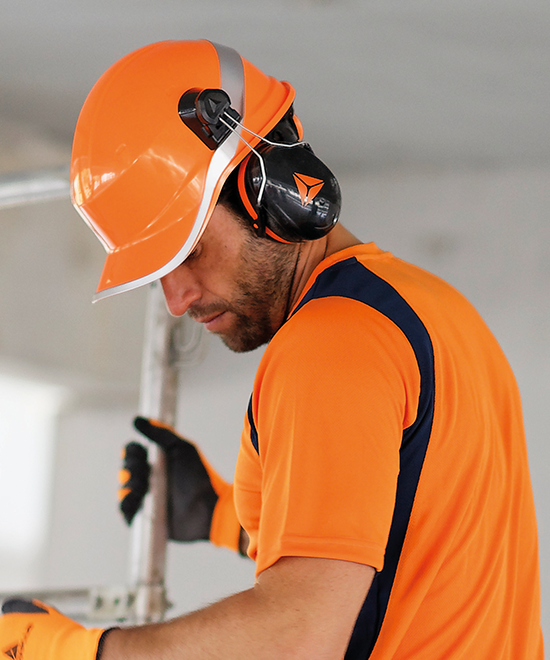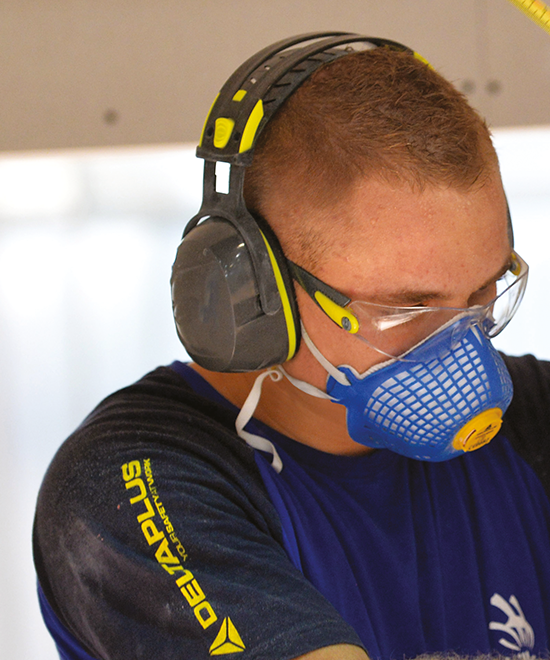
Звукові хвилі дуже шкідливі для вашого слуху. Захистіть себе і відкрийте для себе наш захист слуху Delta Plus, якість і надійність якого гарантовані.


Звукові хвилі дуже шкідливі для вашого слуху. Захистіть себе і відкрийте для себе наш захист слуху Delta Plus, якість і надійність якого гарантовані.

One of the first steps is to understand the noise level you are exposed to, measured in decibels (dB). If the noise level is consistently above 85 dB, hearing protection is necessary, as prolonged exposure to such conditions can lead to hearing loss. Sound meters can help determine the exact noise level on the worksite.
The type of noise – whether it's continuous, intermittent, or impact – also plays a part in the decision-making process. Continuous noises like machinery hum might require different protection than sudden, loud noises such as a gunshot or a hammer striking an object.
Also, the Noise Reduction Rating (NRR) of the hearing protector is a vital factor. NRR is a measure of how much a hearing protection device can reduce the noise level. The higher the NRR, the greater the noise attenuation.
Comfort and convenience should not be overlooked. Earplugs or earmuffs that fit poorly or are uncomfortable are less likely to be worn consistently. Look for options like molded earplugs or adjustable earmuffs to ensure a good fit.
Lastly, consider the environment and the nature of the work. In warm, high-activity situations, earplugs may be a better option due to less heat trapping. In contrast, earmuffs can be more suitable for cooler environments and jobs that require intermittent hearing protection.
To sum up, when choosing hearing protection, evaluate the worksite's decibel level, the noise type, the NRR of the protector, comfort, and the nature of your work environment.

There's a diverse range of hearing protection devices designed to safeguard your auditory health. Here are some of the most common types:
Earplugs are small devices that fit directly into the ear canal. They come in a variety of materials, from foam and silicone to custom molded options.
Foam Earplugs are disposable, cost-effective, and offer substantial noise reduction. They are compressed before insertion, expanding to fit the ear canal.
Silicone and Flanged Earplugs are reusable and typically more durable than foam plugs. They often have a flanged design to create a seal against the canal wall.
Molded Earplugs are custom-made to fit the wearer's ear, offering comfort and effective noise reduction. They are typically more expensive, but their durability makes them a worthwhile investment.
Corded Earplugs are attached with a cord to prevent loss and allow for easy removal and reinsertion.
Earmuffs cover the entire outer ear and form a seal to block out noise. They are adjustable and typically offer higher levels of protection than earplugs. However, they can be hotter and more cumbersome.
Standard Earmuffs provide ample noise reduction and are easy to put on and take off, making them suitable for situations where noise exposure is intermittent.
Electronic Earmuffs amplify quiet sounds while reducing loud ones, making them ideal for situations where communication or hearing certain sounds is important.
Ultimately, the type of hearing protection chosen will depend on the nature of the noise, the duration of exposure, the Noise Reduction Rating (NRR) needed, and the user's comfort.
